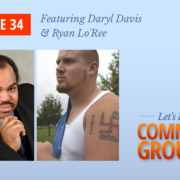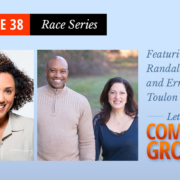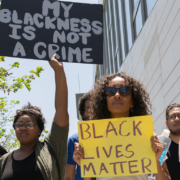Individual Action is Needed to Improve Race Relations in America. I Should Know.
In this piece written for Newsweek, Common Ground Committee panelist and podcast guest Dr. Brian Williams talks about why he has committed to stepping out of his comfort zone to talk about race, and the first step we all must take to help heal racial injustices.
by Brian Williams, M.D.
In numb silence, I watched footage of protests in Minneapolis escalating to violence. Another Black man dead, another cop on video, and a city ablaze. Mentally replaying a prior tragedy, I was worried because I have a perspective on the death of George Floyd unlike anyone else.
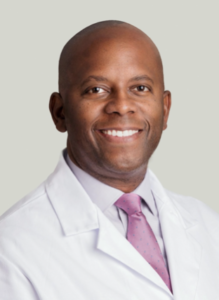 Just four years ago, there were nationwide protests against police brutality after the death of Philandro Castile, less than six miles from where Mr. Floyd was killed. The protest in Dallas, TX, on July 7, 2016 turned deadly. I am the trauma surgeon who cared for seven of the twelve ambushed police officers. It was the only time in my career I crumbled to the floor crying about strangers I could not save. The shooter was Black. I am Black. His targets, my patients, were cops.
Just four years ago, there were nationwide protests against police brutality after the death of Philandro Castile, less than six miles from where Mr. Floyd was killed. The protest in Dallas, TX, on July 7, 2016 turned deadly. I am the trauma surgeon who cared for seven of the twelve ambushed police officers. It was the only time in my career I crumbled to the floor crying about strangers I could not save. The shooter was Black. I am Black. His targets, my patients, were cops.
At a press conference days later, my public display of empathy for the murdered officers struck a nerve. Some called me a traitor to my race. A retired police chief said I should not be allowed to treat white people. Both saw the same video clip but came to disparate conclusions about my role as a Black man in that tragedy.
Over the next year I struggled with that role. I wanted to regain a sense of normalcy. At the same time I felt I could do more. One opportunity came when the Mayor of Dallas appointed me to become Chair of the Citizens Police Review Board.
Education Brings Impact
As Chair of the Board, I learned about 21st Century Policing and community outreach. About police procedures and civil rights. About politics and public safety. And how some communities celebrated the police as protectors while others, a few miles away, reviled them as killers. But my most important lesson was about people – those who wore the uniform and those who did not.
A turning point for me came when I spoke at a Common Ground Committee event about race, violence and medicine. I didn’t go in to change people’s minds, just to share my experience and hopefully inspire some to action. I remember sitting down in that intimate setting, in a room full of attentive white people with eyes locked on me, wondering how it would go. I received very thoughtful questions. Some people came up to me after the event, and even had tears in their eyes. I realized I could have an impact.
In order to have impact, I chose to step out of my zone of comfort and safety to speak out. I focus on my singular goal: eliminating systemic racism and its deadly consequences. It is not a zero-sum game. It is about service to humanity. In order to move forward, we need to understand each other. That requires the courage to share our experiences, biases, and expectations.
As cities enter another week of protests, I again field questions. I understand the anger and frustration because it dwells within me, continually bubbling to the surface. So I answer, without reservation, that I know exactly how they feel. Yet I remain hopeful that we may be at the tipping point I expected in 1991, when Rodney King was beaten by police.
The collective outcry of individual Americans makes the response this time feel different. Across the board, from the left and the right, individuals condemn the actions of the police officers who caused George Floyd’s death. President Trump said “it was a terrible thing. It should never have happened”, while House Speaker Nancy Pelosi described it as “a murder right before our eyes”. Chiefs of police across the country, from Minneapolis to Honolulu, have explicitly said that this was wrong and should not have happened. All four officers involved have now been arrested and charged.
Finding Common Ground
But there also needs to be a change at the cultural level, and for that to happen individuals must listen to others’ experiences. I’m the only Black person in my neighborhood, so if I’m going to walk in my neighborhood I always take my dog, a golden doodle. I’m intentional about this. I assume a Black man walking a dog is less threatening than a Black man walking alone.
In We Are the Ones We Have Been Waiting For, Peter Levine demonstrated that 3.5% of a population must take action to achieve social change. In America, that means between 11 and 12 million of us must act. Listening is not enough. We need action.
Once we understand the experiences of those who are not like us, we must work to build a culture in which all police officers do what an officer did in Seattle on May 30th: force other officers to stop violent arrest tactics, like putting their knee on a person’s neck. Likewise, while anger is understandable, many rightfully angry protesters still stood in the way of violence and looting, like the young men in this viral TikTok video.
Start by listening, introspection, and education to understand your biases about race. Then take action. Even small acts can have tremendous impact. Extraordinary times require action from ordinary people. Anyone can make a difference, and that person can be you.
Dr. Brian Williams is the immediate past-Chair of the City of Dallas Citizens Police Review Board and an Associate Professor of Trauma and Acute Care Surgery at the University of Chicago.
– This article was published in Newsweek on June 15, 2020.

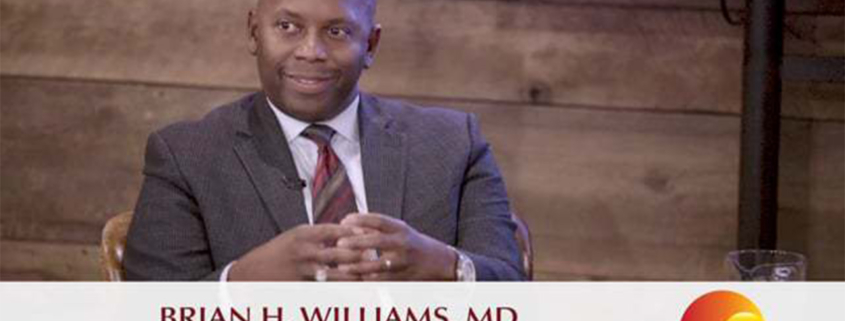

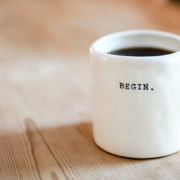
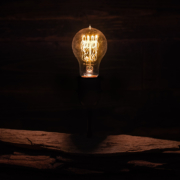
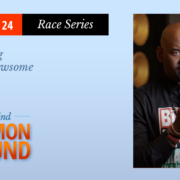
![CGC_Davis_LoRee_Event_FB_1200x630[88]](https://commongroundcommittee.org/wp-content/uploads/2021/05/CGC_Davis_LoRee_Event_FB_1200x63088-180x180.jpg)
